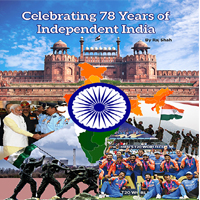Celebrating 78 Years of Independent India
By Raj Shah
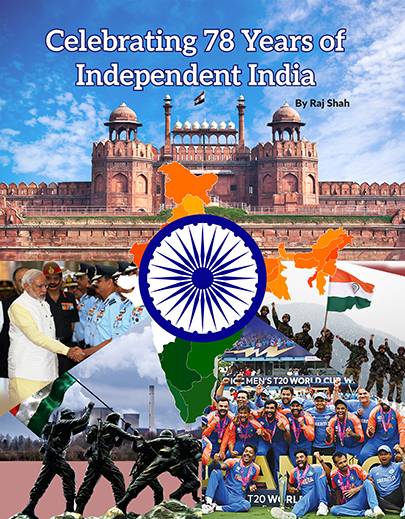
On August 15, 2024, India will celebrate its 78th year of independence from the shackles of the British evil empire. This milestone is a testament to the nation’s resilience, determination, and progress. Over the past 78 years, India has transformed from a newly independent country struggling with poverty and illiteracy to a global powerhouse in various fields.
From the economy to foreign policy to education, let’s look into India’s success in several spheres.
Economic Growth and Development
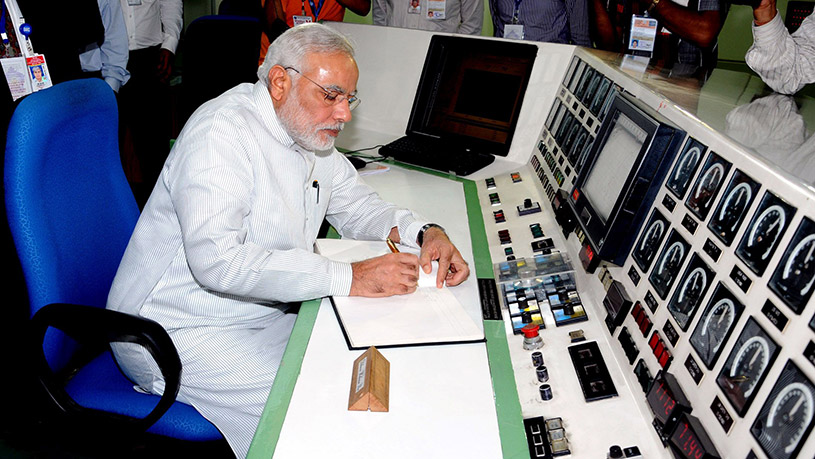
One of India’s most significant achievements is its economic growth. In 1947, India’s economy was primarily agrarian, with limited industrialization. Today, India is the world’s fifth-largest economy by nominal GDP and the third-largest by purchasing power parity (PPP). This remarkable metamorphosis, driven by the visionary leadership of Prime Minister Modi, has established India as a leading example of economic hope and opportunity.
Through a strategic combination of economic reforms, cutting-edge technological advancements, and social initiatives, India is meticulously planning a path towards achieving the status of a developed economy by the year 2047, a significant milestone coinciding with the centenary of its independence.
The following economic indicators clearly show that nothing is going to stop India from becoming a developed economy by the year 2047, the world’s third largest economy well before 2030, and the second largest by 2050.
Liberalization and Reforms
The economic liberalization of 1991 marked a turning point for India. The government implemented structural reforms, reducing trade barriers and encouraging foreign direct investment (FDI). These reforms unleashed India’s entrepreneurial spirit, leading to rapid economic growth, increased foreign investment, and the rise of a robust private sector.
Technological and industrial advancements
India has made significant strides in technology and industrialization. The country is now a global hub for information technology (IT) services, with cities like Bengaluru and Hyderabad becoming renowned IT centers. Indian IT companies such as Infosys, TCS, and Wipro are leaders in the global market. Additionally, India has a burgeoning startup ecosystem, with numerous unicorns emerging in various sectors.
Agricultural Advancements
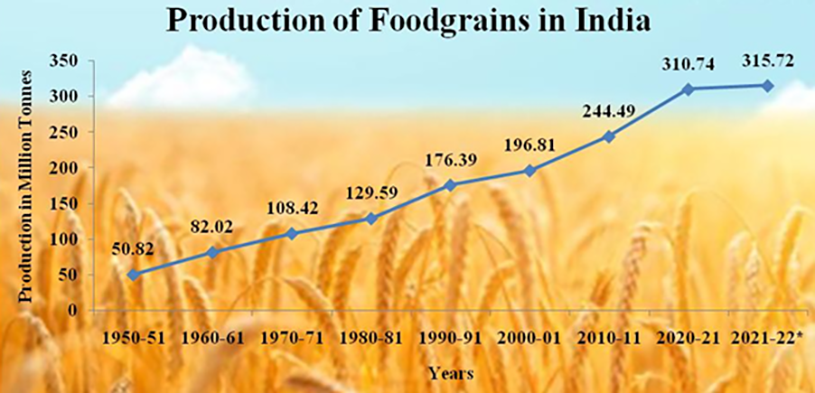
“Agriculture remains a vital part of India’s economy, and the country has made substantial progress in this sector. The Green Revolution in the 1960s and 1970s introduced high-yielding varieties of seeds, modern irrigation techniques, and improved agricultural practices.”
This revolution transformed India from a food-deficient nation into one of the world’s largest grain producers.
Scientific and Spatial Exploration
India’s achievements in science and space exploration are commendable. The Indian Space Research Organization (ISRO) has made significant contributions to space technology. Notable achievements include the Mars Orbiter Mission (Mangalyaan), which made India the first country to successfully reach Mars on its first attempt, and the Chandrayaan missions, which have advanced lunar exploration.
Healthcare
India has made remarkable progress in healthcare since independence. The eradication of smallpox and polio stands as a testament to the country’s commitment to public health. The National Health Mission and the Ayushman Bharat Scheme are significant steps towards providing accessible healthcare to all citizens. Additionally, India is a global leader in the pharmaceutical industry, supplying affordable medicines and vaccines worldwide.
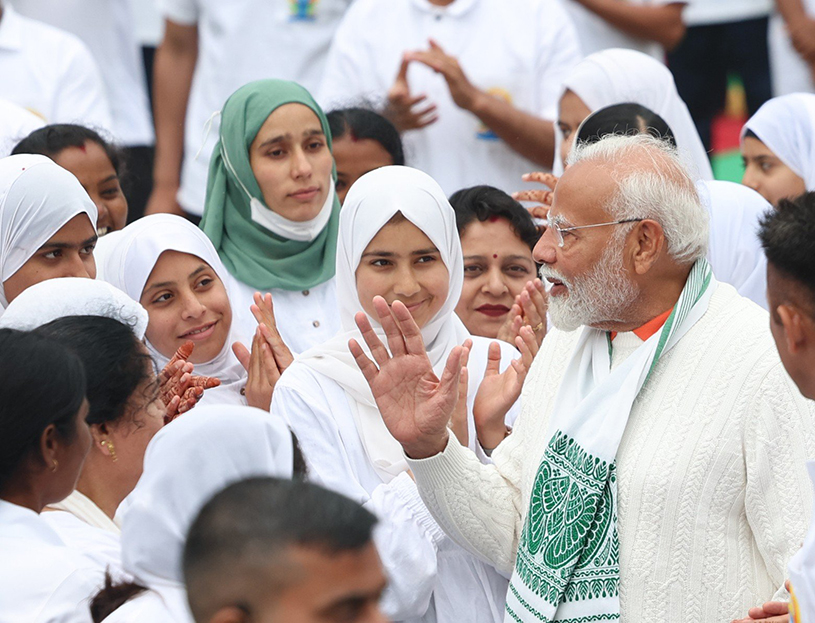 Education and Research
Education and Research
India has made significant strides in education. The literacy rate has increased from around 12% in 1947 to over 74% in 2021. Globally recognized for their excellence, the country boasts a vast network of educational institutions, including prestigious IITs, IIMs, and AIIMS.
The emphasis on research and innovation has led to breakthroughs in various fields, including medicine, biotechnology, and information technology.
Indian scientists and researchers have contributed to global knowledge, earning accolades and recognition worldwide.
Social Progress and Inclusivity
Efforts to promote inclusivity and reduce disparities have marked India’s journey towards social progress. The country has made significant strides in improving gender equality and empowering women. The Beti Bachao, Beti Padhao campaign, launched in 2015, aims to address gender imbalances and promote the education and welfare of girls.
Efforts to uplift marginalized communities through affirmative action and welfare schemes have contributed to social justice. The implementation of the Right to Education Act, which guarantees free and compulsory education for children, reflects India’s commitment to inclusive development.
Cultural Renaissance and Global Influence
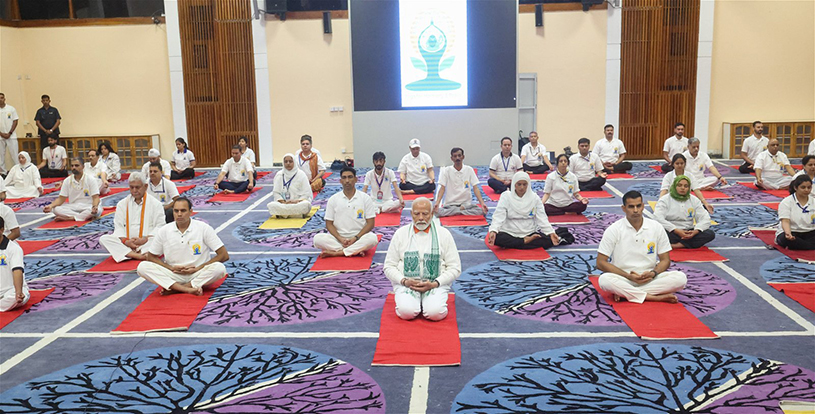 India’s rich cultural heritage has gained global recognition. Yoga and Ayurveda, ancient practices rooted in Indian tradition, have found acceptance and popularity worldwide.
India’s rich cultural heritage has gained global recognition. Yoga and Ayurveda, ancient practices rooted in Indian tradition, have found acceptance and popularity worldwide.
In 2014, the United Nations proclaimed June 21 as the International Day of Yoga, following a proposal by Prime Minister Modi.
“Let us use the power of yoga, not only to be healthy and happy, but also to be kind to ourselves and to each other,” Modi told a gathering of yoga devotees seated on yellow mats on the north lawn of the U.N.
Countries worldwide recognize and observe the International Day of Yoga, highlighting India’s cultural diplomacy and soft power. In 2023, more than 190 countries participated in the celebrations, including mass yoga sessions, educational events, and other activities to promote the benefits of yoga. The day’s goal is to raise awareness of yoga’s holistic benefits and promote its practice globally.
Infrastructure Development
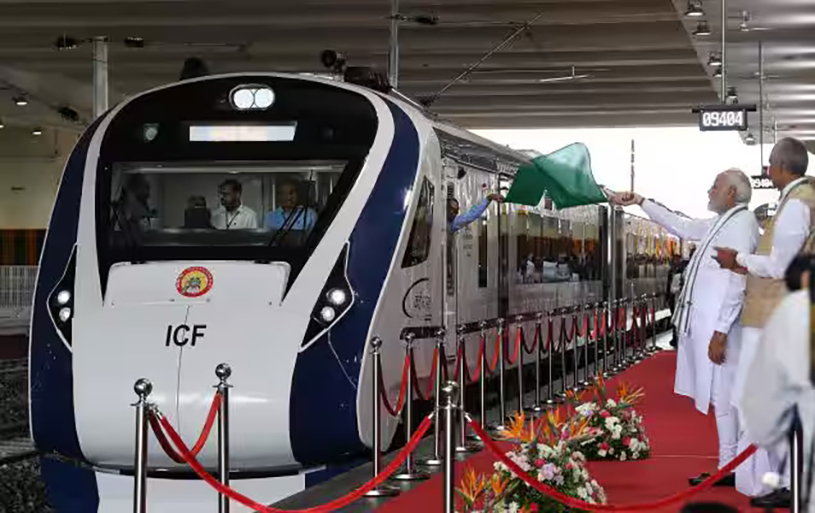 “Infrastructure development has been a key focus for India. The construction of a vast network of roads, highways, and expressways has improved connectivity across the country. The Golden Quadrilateral and Bharatmala projects have enhanced road infrastructure, facilitating trade and commerce.”
“Infrastructure development has been a key focus for India. The construction of a vast network of roads, highways, and expressways has improved connectivity across the country. The Golden Quadrilateral and Bharatmala projects have enhanced road infrastructure, facilitating trade and commerce.”
The expansion of the railway network, including the introduction of high-speed trains like the Vande Bharat Express, has revolutionized transportation. The development of metro rail systems in major cities has addressed urban transportation challenges, providing efficient and eco-friendly solutions.
Political Stability and Democracy
India, the world’s largest democracy, has maintained political stability despite its diversity. The country has successfully conducted numerous free and fair elections, ensuring a smooth transfer of power. The democratic framework has enabled the participation of various political parties and voices, contributing to the nation’s vibrant political discourse.
A New India on the Global Stage
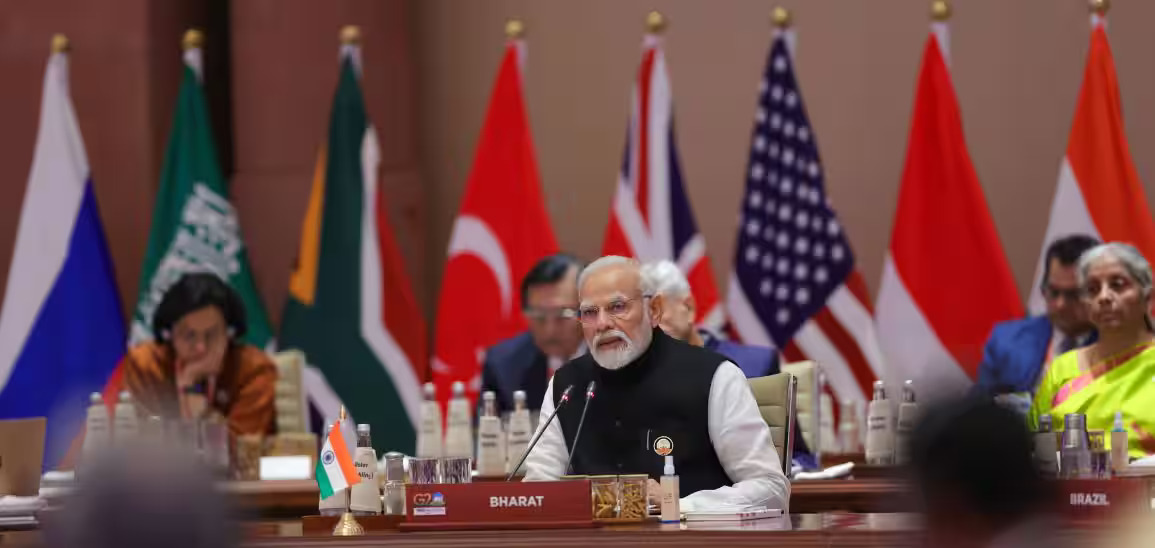
Historically, the world has viewed India through a lens of self-assured rhetoric. However, a transformative shift has occurred. Today, people recognize India not just as a nation with strong convictions but also as a responsible global partner. While steadfastly rooted in its own cultural and philosophical bedrock, India is demonstrating a resolute commitment to its international obligations.
New Delhi’s increasingly proactive stance on the world stage underscores this evolution. The nation is no longer content with merely adhering to established global norms; it aspires to actively shape them. Prime Minister Modi’s dynamic leadership has catalyzed this ambition, propelling India towards a more prominent global role. Indian foreign policy has deftly seized the opportunity presented by the changing geopolitical landscape.
In the past decade, a remarkable metamorphosis has taken place. A nation eager to meaningfully contribute to global governance has replaced the once-perceived “perpetual naysayer.” India’s evolving image is that of a constructive partner, willing to shoulder its share of responsibilities in building a better world.
The list below demonstrates India’s leading position on the international scene and its commitment to putting its own interests first. It also displays India’s foreign policy independence.
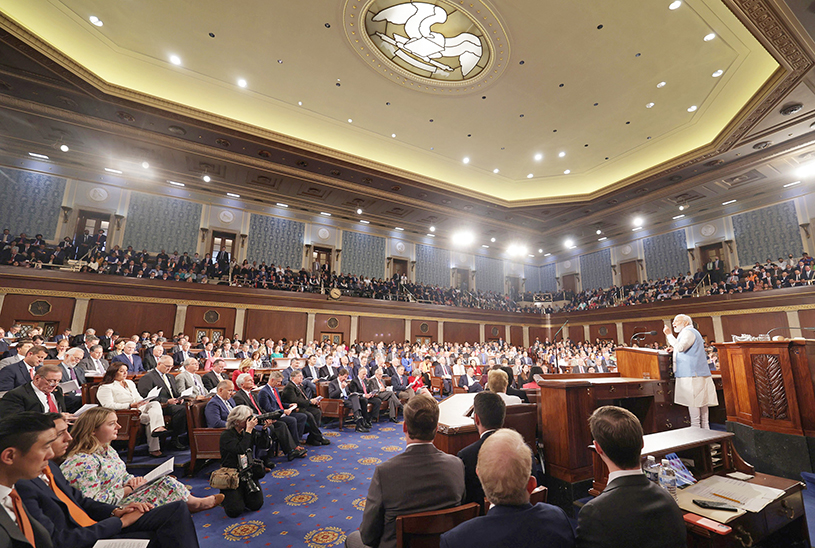 India has maintained a resolute and independent stance against Western nations by preserving neutrality in the ongoing Russia-Ukraine conflict, despite facing immense pressure from the Western world.
India has maintained a resolute and independent stance against Western nations by preserving neutrality in the ongoing Russia-Ukraine conflict, despite facing immense pressure from the Western world.
- “India has demonstrated its unwavering commitment to national security by being the sole country to ban TikTok and other Chinese applications deemed a threat to its sovereignty, showcasing a prioritization of domestic interests.”
- To safeguard its citizens from oil shortages and long queues, similar to those experienced by Pakistan and Sri Lanka, India has strategically purchased Russian oil at discounted prices. While domestic fuel prices have been relatively high, they have remained stable for over two years.
- India’s decision to acquire Rafale fighter jets from France instead of the US-made F-35s has resulted in significant cost savings and the acquisition of superior technology aligned with India’s specific needs. This choice was influenced by the US’s unreliability as a technology transfer partner and its history of prioritizing domestic interests (America First policy). A prime example is the US’s refusal to share GPS technology with India during the 1999 Kargil War while providing it to Pakistan.
- India’s External Affairs Minister, S. Jaishankar, has emerged as a formidable global diplomat, consistently delivering strong and effective responses to any criticism or allegations leveled against India. His exceptional performance has solidified his position as one of the world’s most capable and admired foreign ministers.
- India has taken decisive action against Pakistan by conducting surgical strikes in Uri in 2016 and Balakot in 2019. The terrorist attacks on Indian army personnel in the Uri and Pulwama regions, respectively, prompted these military operations.
- India launched a counteroffensive in retaliation for the Chinese military incursion into the Galwan Valley in Ladakh, which claimed the lives of 20 Indian soldiers. Estimates suggest that at least 50 Chinese soldiers perished.
Environmental Initiatives
India has made concerted efforts towards environmental conservation and sustainability. The country is a signatory to the Paris Agreement and has committed to reducing its carbon footprint. Initiatives like the Swachh Bharat Abhiyan, launched in 2014, aim to promote cleanliness and sanitation.
Renewable energy has seen significant growth, with India emerging as a leader in solar and wind energy. The International Solar Alliance, spearheaded by India, aims to promote solar energy utilization globally, underscoring the country’s commitment to sustainable development.
Achievements in Sports
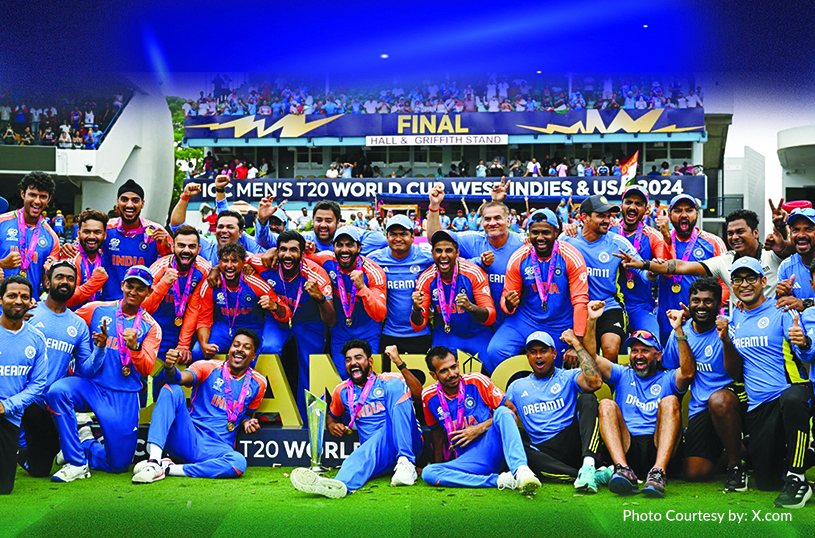 India has also made notable achievements in sports. The country has produced world-class athletes in cricket, badminton, wrestling, and other sports. The success of Indian athletes in international competitions, including the Olympics, has brought pride to the nation.
India has also made notable achievements in sports. The country has produced world-class athletes in cricket, badminton, wrestling, and other sports. The success of Indian athletes in international competitions, including the Olympics, has brought pride to the nation.
The Indian Premier League (IPL) has become one of the most popular and lucrative cricket leagues globally, showcasing India’s passion for the sport.
As India celebrates 78 years of independence, the nation can look back with pride at its numerous achievements. Since 1947, India has come a long way in terms of economic growth and technological advancements, as well as social progress and cultural influence. The journey has not been without challenges, but the resilience and determination of its people have propelled the country forward. As India continues to grow and evolve, it remains a beacon of hope and inspiration for the world.
About the Author:
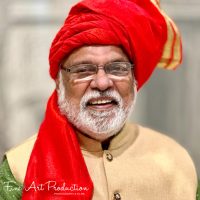 A software engineer by profession, Indian culture enthusiast, ardent promoter of hinduism, and a cancer survivor, Raj Shah is a managing editor of Desh-Videsh Magazine and co-founder of Desh Videsh Media Group. Promoting the rich culture and heritage of India and Hinduism has been his motto ever since he arrived in the US in 1969.
A software engineer by profession, Indian culture enthusiast, ardent promoter of hinduism, and a cancer survivor, Raj Shah is a managing editor of Desh-Videsh Magazine and co-founder of Desh Videsh Media Group. Promoting the rich culture and heritage of India and Hinduism has been his motto ever since he arrived in the US in 1969.
He has been instrumental in starting and promoting several community organizations such as the Indian Religious and Cultural Center and International Hindu University. Raj has written two books on Hinduism titled Chronology of Hinduism and Understanding Hinduism. He has also written several children books focusing on Hindu culture and religion.

